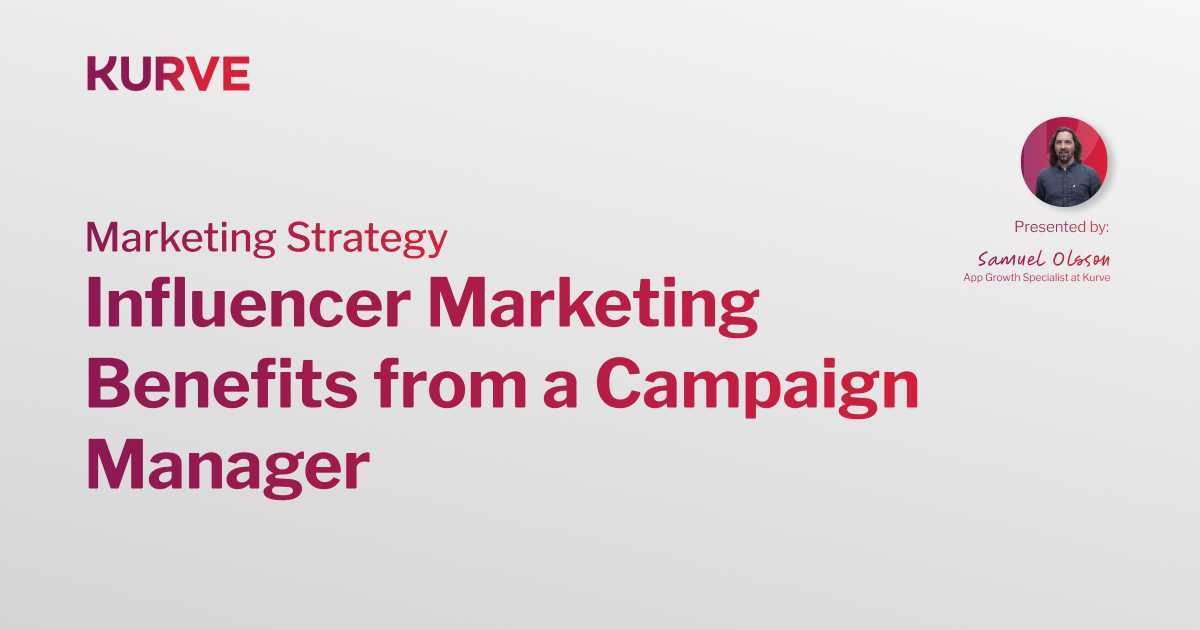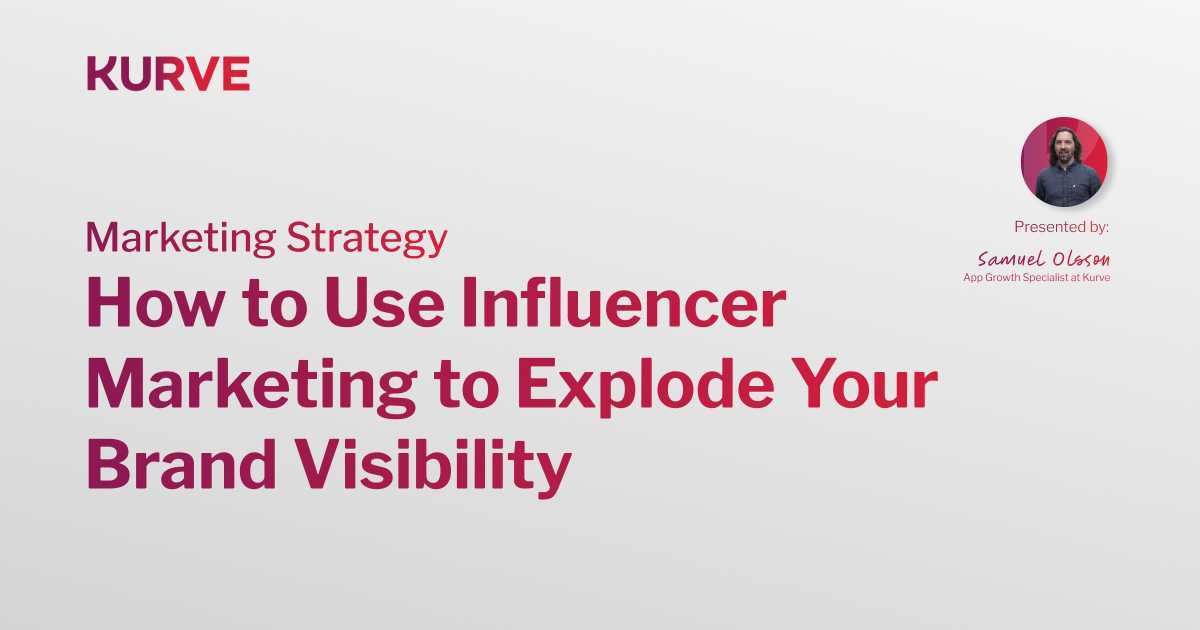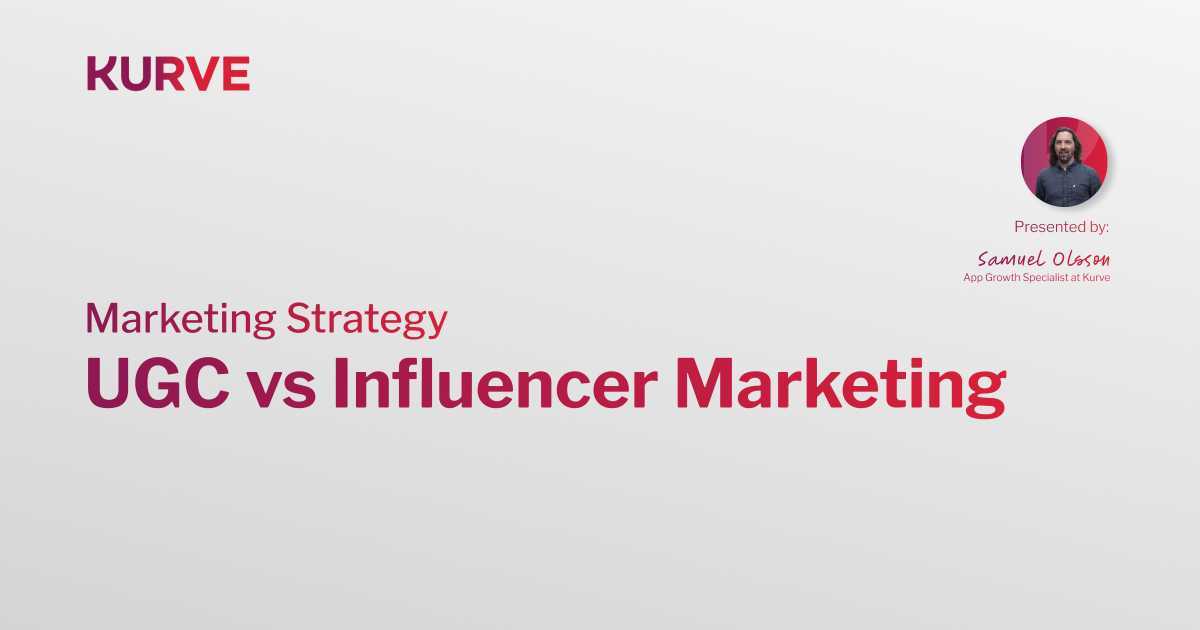Empower Your Strategy With The Top 10 Mobile App Marketing Tools
With millions of apps in the market, reaching your target audience is the biggest challenge app makers and marketers face.
That's where mobile app marketing tools step in.
This blog post will cover the mobile app marketing tools that can transform your app's visibility and user acquisition and help you conquer tasks like marketing research and app store optimization.
Whether you're an app developer or a seasoned marketer, it's time to empower your marketing strategy.
| Table of Contents |
|
What is a Mobile App Marketing Tool? Why are Mobile App Marketing Tools Important? Top 10 Mobile App Marketing Tools |
What is a Mobile App Marketing Tool?
Mobile app marketing tools are software solutions with features and capabilities that help developers and marketers promote apps.
Mobile app marketing tools help you understand how your app is performing through detailed analytics and insights. With this information, you can:
- Identify strong and weak points to refine your strategies.
- Analyze competitors and industry trends to inform your marketing decisions.
- Track key metrics like downloads, user engagement, retention rates, and revenue.
- Optimize your marketing efforts to increase user acquisition.
- Nurture users with personalized messaging, push notifications, and in-app experiences.
Why are Mobile App Marketing Tools Important?
Mobile app marketing tools can offer an array of advantages. Here's why these tools are essential for driving your app's success.
Efficiency and Automation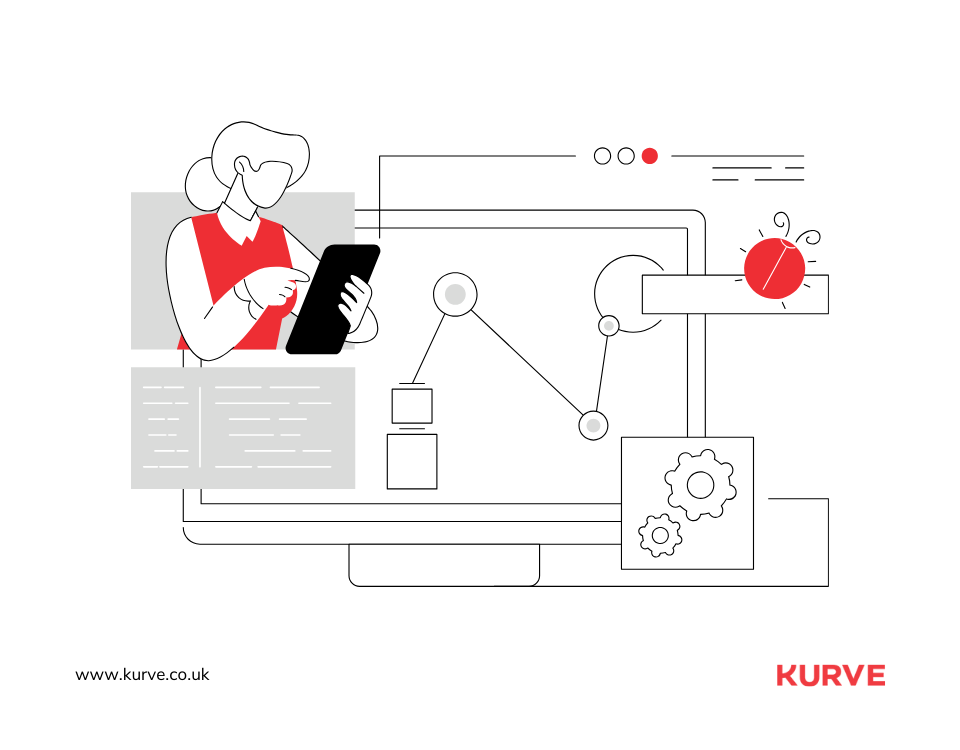
Marketing tools streamline repetitive tasks, such as scheduling social media posts, analyzing data, and managing campaigns across multiple platforms. This frees up immense amounts of valuable time.
By automating these processes, marketers are no longer bogged down by manual work. Instead, they can focus on strategic activities that directly contribute to results. That could be developing creative campaigns, analyzing trends, and refining engagement tactics.
The combined effect of streamlined workflows and strategic focus boosts productivity, allowing marketers to accomplish more in less time.
Data-driven Insights
Mobile app marketing tools allow you to track vital metrics, including user engagement, conversion rates, and ROI. In other words, whether your campaigns are paying off.
By analyzing these insights, you go beyond the numbers. You begin to identify patterns in user behavior, pinpoint areas for improvement, and understand the true impact of your marketing efforts.
Data-driven insights take gut feelings out of the equation. You can optimize campaigns, A/B test different elements and allocate resources where they will deliver the best return.
Targeted Campaigns
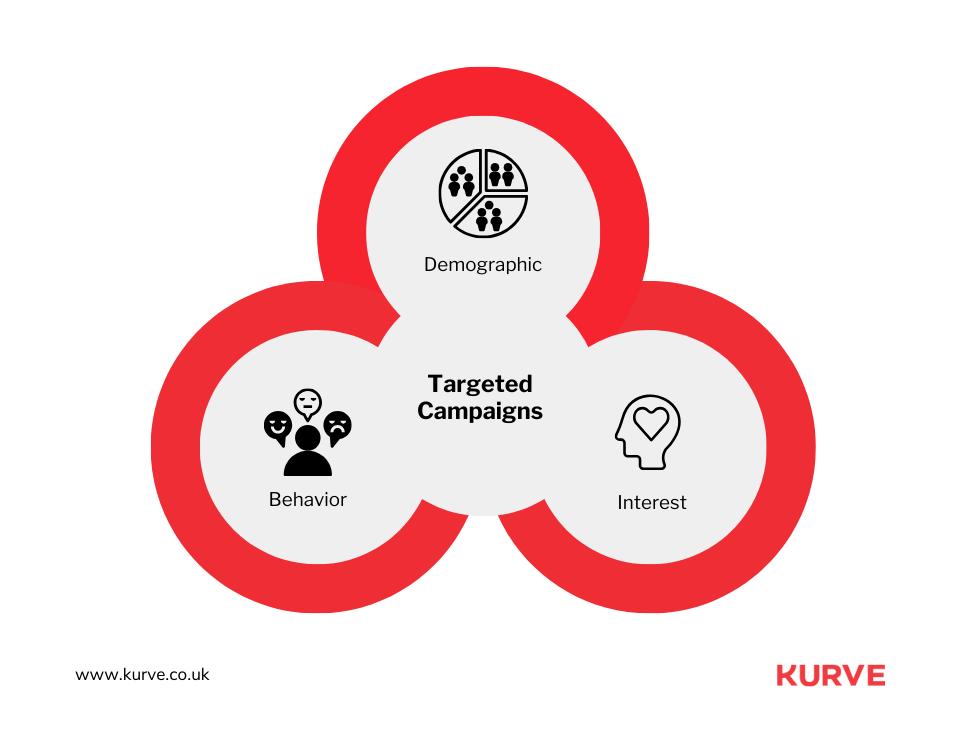
Mobile app marketing tools let you divide your audience into highly specific segments based on a multitude of factors, such as:
- Demographics: Age, gender, location, income bracket
- Behavior: In-app actions, purchase history, feature usage
- Interests: Topics they engage with online, related apps they use
With these refined segments, you can create a personalized campaign that speaks directly to each group's needs, desires, and pain points. Kurve implemented this strategy with Treecard and increased the relevance of leads, resulting in higher engagement and conversions.
You get the most out of your marketing resources by focusing on the right audience. Instead of wasting impressions on people unlikely to be interested, your campaigns resonate with those likely to download and engage with your app.
Personalization
Modern mobile app marketing tools allow you to move far beyond generic, one-size-fits-all campaigns.
You can tailor your app's content and features according to the individual preferences and behavior of users. This can include suggesting products or content they might enjoy, offering personalized promotions relevant to their interests, and creating customized onboarding flows highlighting the most interesting features.
Personalization fosters a sense of connection between your app and your users. The users feel understood and valued, which significantly impacts engagement and loyalty.
Competitive Advantage
Mobile marketing tools let you keep close tabs on what your competitors are up to. Monitor the mobile app market trends and insights from:
- Marketing campaigns (messaging, channels, etc.)
- App Store Optimization strategies (keywords, visuals)
- Feature updates and content releases
The ability to analyze both competitors and market shifts allows you to adapt quickly. You can pivot strategies to avoid weaknesses, capitalize on opportunities, and outperform those relying on outdated tactics.
Campaign Optimization
A/B testing with mobile app marketing tools lets you directly compare different variations of:
- App Store visuals (screenshots, icons)
- Ad creatives (images, headlines, calls to action)
- In-app messaging (notifications, onboarding flows)
As users interact with each variation, the tools collect data, revealing which performs best for your desired goal through metrics like downloads, clicks and engagement. You implement the winner, boosting overall campaign effectiveness.
Some tools go beyond A/B testing, using advanced algorithms to analyze historical data to predict the likely outcome of a mobile app marketing strategy. This helps you make more informed decisions about where to invest resources.
Cost-effectiveness
It's easy to mistake the upfront cost of some mobile app marketing tools as an extra burden. However, automating time-consuming tasks frees up your team – a single marketer or an entire department. These valuable hours saved translate to reduced labor costs when marketing your app.
Detailed app analytics and campaign tracking allow you to see exactly where your marketing budget is going and how effective each channel is. This empowers you to cut wasted spend and reallocate funds towards the highest-performing strategies.
Many tools offer tiered pricing plans or even free versions for smaller budgets. This means app developers and marketers of all sizes can find solutions that fit their needs without breaking the bank.
Cross-channel Integration
Your potential users are everywhere – social media, email, search, and other digital channels.
Instead of juggling multiple platforms, many tools combine your key marketing channels under one roof. This creates a centralized command center where you can:
- Plan and schedule content across social platforms
- Craft and send email campaigns
- Manage mobile app ad campaigns
These tools can also track individual users as they interact across channels. For example, a user could click a Facebook ad and then receive a perfectly timed email reminder. This level of coordination isn't possible without integrated tools.
By aggregating data from all your channels in one place, you gain a holistic understanding of how campaigns perform. With this, you identify which channel combinations and sequences drive the best conversions and user engagement.
Top 10 Mobile App Marketing Tools
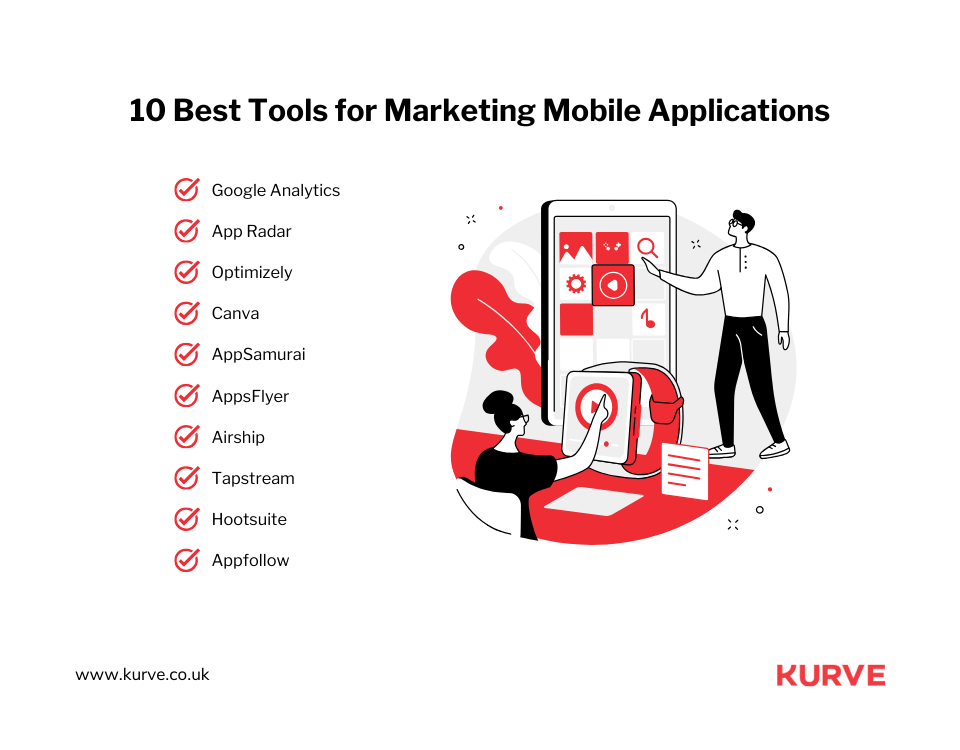
Choosing the right tools to help you market your app can seem daunting, so let's break down some of the industry favorites.
1. Google Analytics
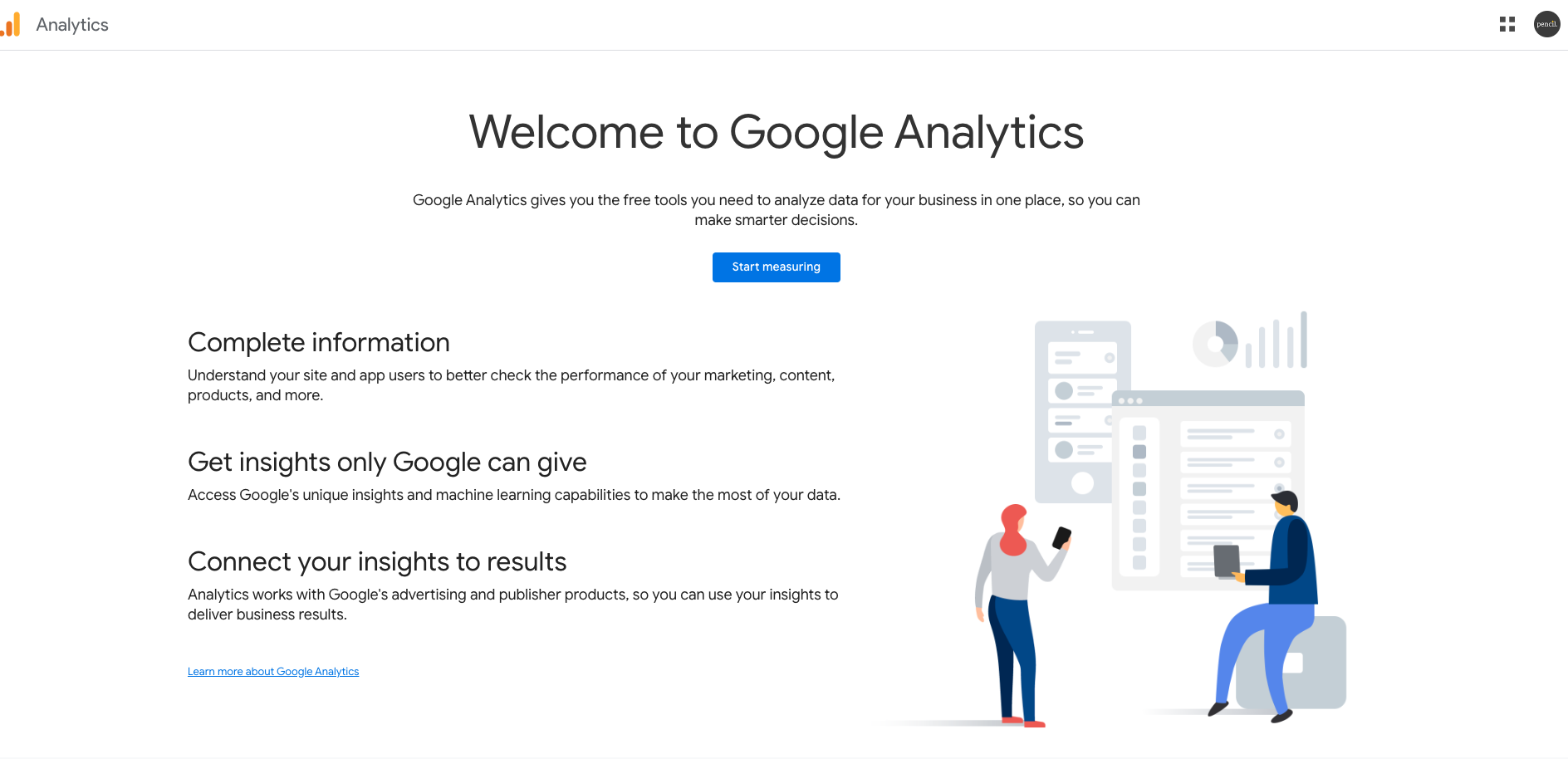
Google Analytics is a free yet incredibly powerful analytics platform. While not exclusively app-focused, it offers extensive capabilities for tracking app performance and user behavior.
Key Features:
- In-depth user and event tracking
- Cohort analysis
- Funnel visualization
- Integration with other Google marketing platforms (like Google Ads)
Google Analytics unlocks a deep understanding of your users. You can study their demographics, in-app behaviors, and how they discovered your app. You can use this data to pinpoint acquisition sources, gauge engagement, track revenue, and optimize your app experience with A/B testing.
Cost: Free
2. App Radar
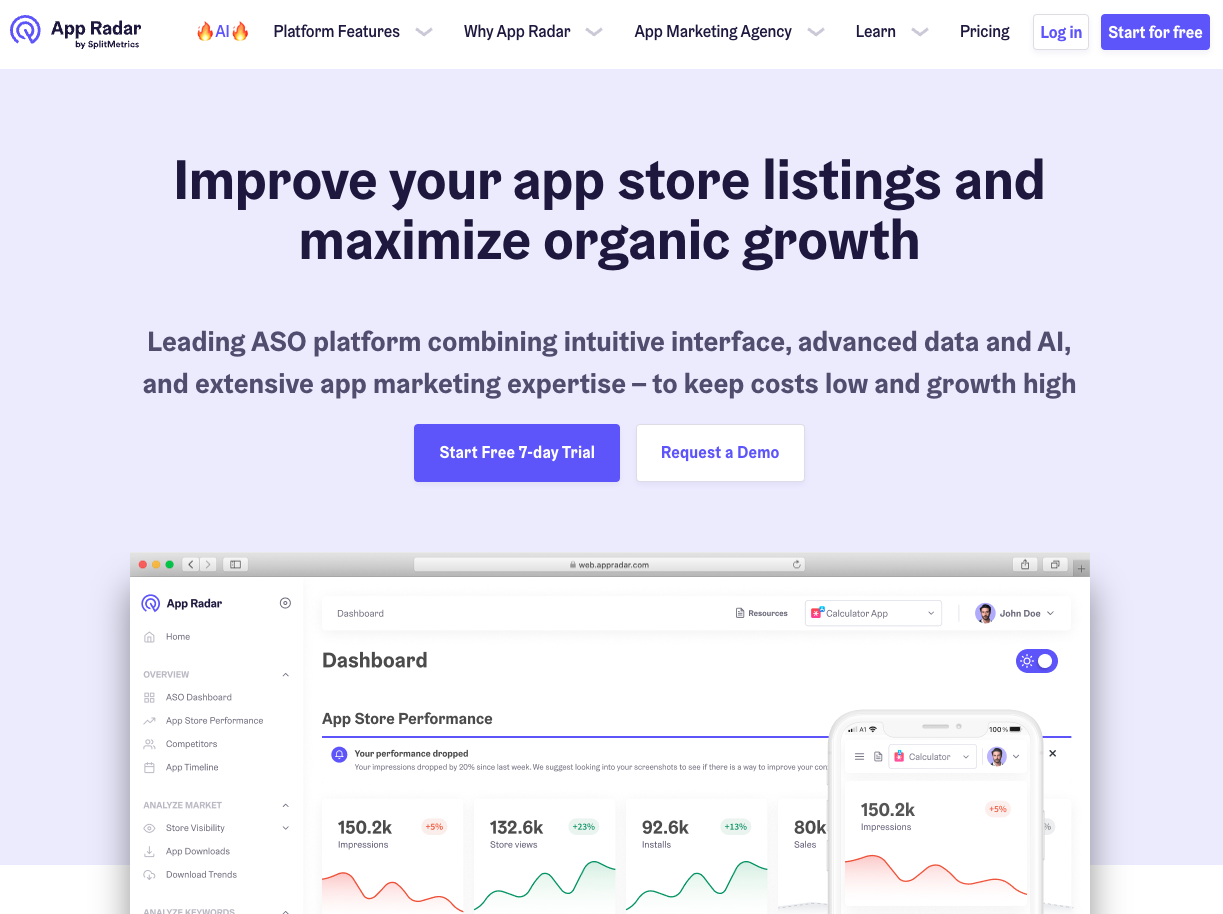
App Radar is an all-in-one App Store Optimization platform dedicated to boosting your app's visibility and organic app downloads.
Key Features:
- Keyword research and tracking
- Competitor analysis
- App Store listing optimization tools
- Review and ratings management
App Radar helps app marketers improve their app's visibility in app stores (e.g., Google Play, Apple App Store) with powerful keyword research tools, AI-powered competitor analysis insights and features to streamline updating app store listings. This translates to more organic downloads and increased discoverability.
Cost: Tiered pricing plans that start at $59/mo.
3. Optimizely
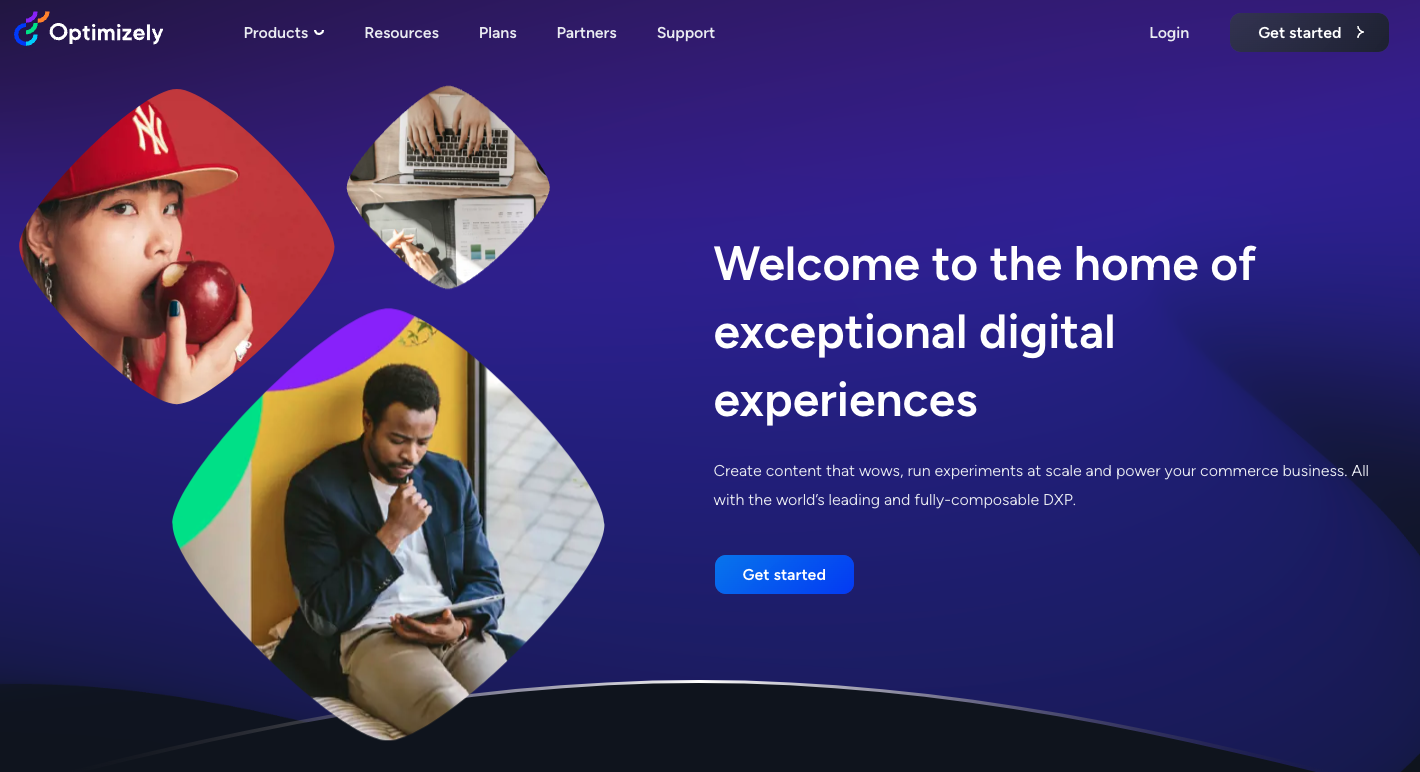
Optimizely is a powerful experimentation platform for websites and mobile apps. It facilitates data-driven optimization and improvement of your marketing efforts.
Key Features:
- Easy to set up A/B and multivariate testing
- Mobile app-specific testing features
- Robust data analysis and visualization
- Personalization capabilities
Optimizely helps app marketers improve their campaigns and in-app experiences. It provides a robust platform for A/B testing, allowing you to compare different design elements, messaging, or features directly with users. This data-driven approach ensures that the changes you implement will boost engagement and conversions.
Cost: Customized pricing, depending on the features
4. Canva
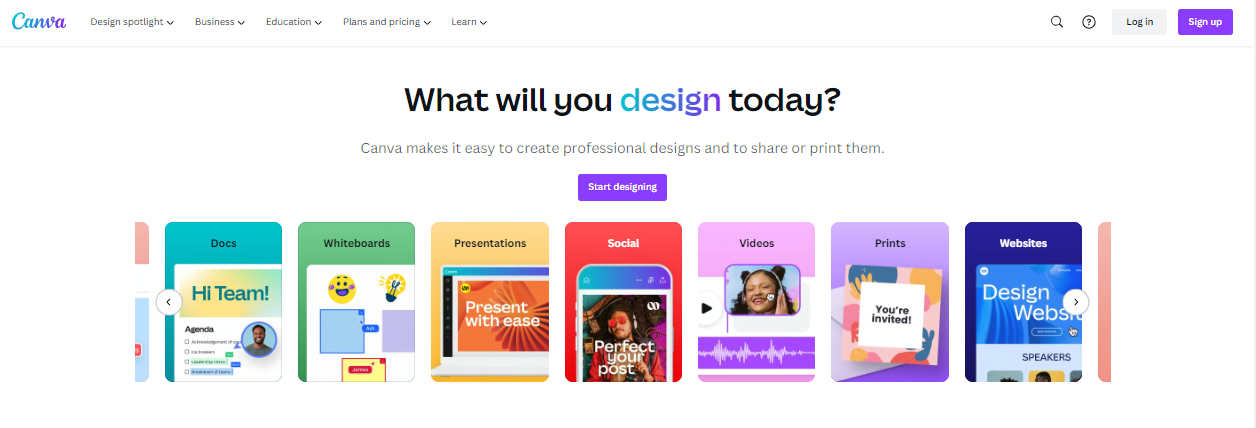
Canva is a design platform beloved for its ease of use. It's perfect for creating visuals that attract users and promote your app.
Key Features:
- Vast template library (app store screenshots, social ads, etc.)
- Drag-and-drop editor for customization
- Image, video, and graphic element library
- Collaboration features for teams
Canva empowers app marketers to create visually appealing marketing assets without requiring specialized design skills. Its extensive library of templates (customized for app stores, social media, etc.), drag-and-drop editor, and image resources make it easy to produce high-quality visuals for ads, screenshots, and social media promotions that attract users.
Cost: Free basic plan, and a pro plan that starts at $14.99/mo
5. AppSamurai
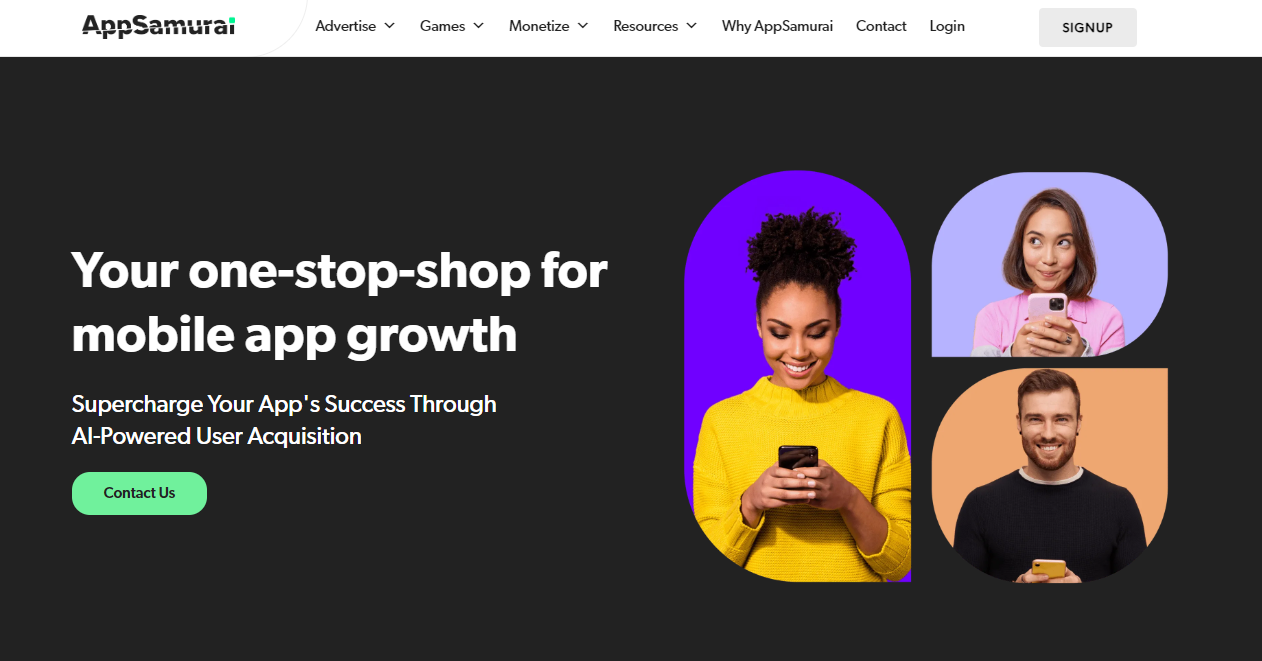
AppSamurai focuses exclusively on mobile advertising, making running campaigns across multiple ad networks easy.
Key Features:
- Manage campaigns on Facebook, Google, Apple Search Ads, etc., in one place
- Automation tools to optimize bids and targeting
- Creative testing and analytics
- Fraud detection capabilities
AppSamurai lets you manage campaigns across multiple ad networks (like Facebook and Google) from a central platform. With features like automated bidding, creative testing, analytics, and fraud detection, AppSamurai helps you optimize ad spend and achieve the best results for your app campaigns.
Cost: Performance-based pricing.
6. AppsFlyer
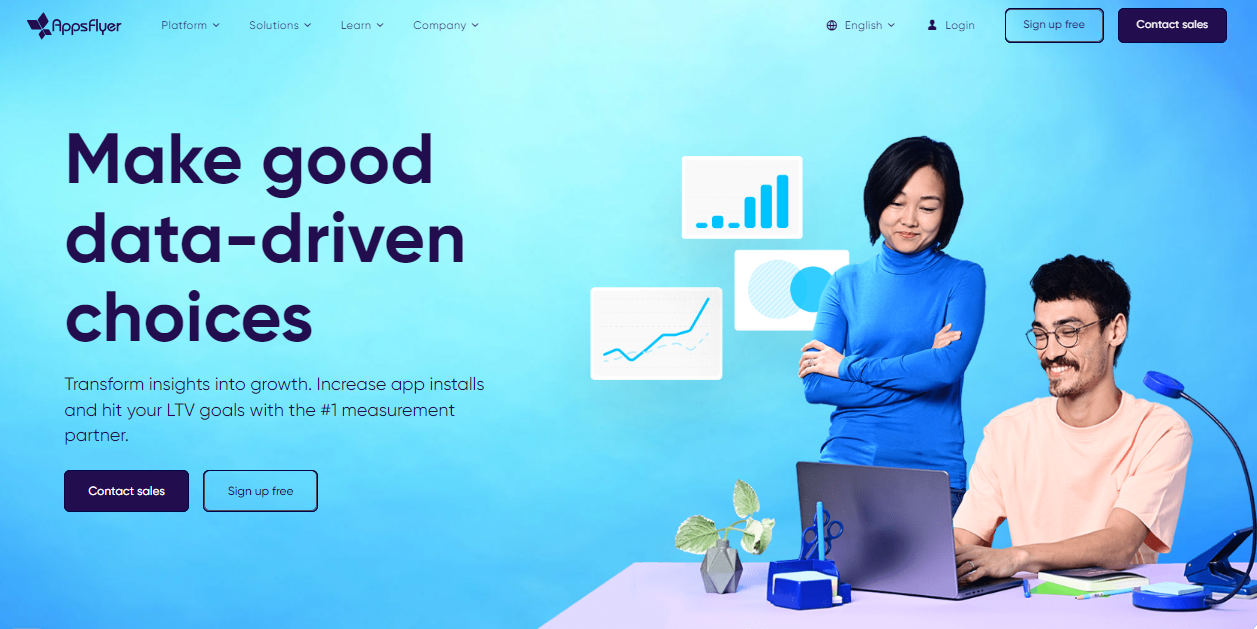
AppsFlyer is a leading mobile attribution platform that helps you understand which marketing channels drive your app installs.
Key Features:
- Accurate attribution across various channels
- Deep linking for seamless user journeys
- Fraud protection features
- Robust analytics and dashboards
AppsFlyer is a mobile attribution platform that helps app marketers track where their installs come from. With accurate data on which channels drive the most valuable users, you can allocate your marketing budget for maximum ROI. AppsFlyer also offers fraud protection and deep linking for seamless user onboarding.
Cost: Customized pricing.
7. Airship
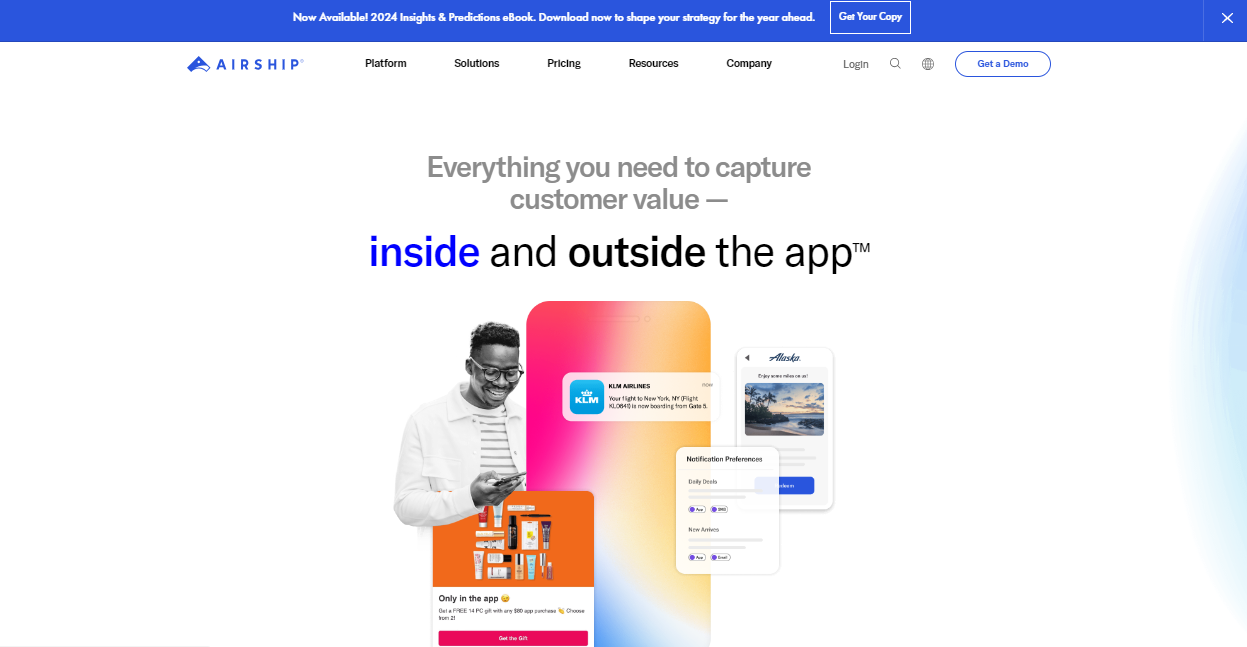
Airship is a tool specializing in mobile app user engagement and messaging. They help you keep your users coming back to your app.
Key Features:
- Push notifications and in-app messaging
- Rich segmentation and personalization options
- A/B testing of messaging
- Automation and journey builder tools
Airship focuses on building long-term relationships with your app users through personalized in-app messaging, push notifications, and rich engagement tools. They help keep users returning to your app by providing timely, relevant communication tailored to their preferences and behavior. This ultimately boosts retention and customer loyalty.
Cost: Tiered pricing plans based on volume and features.
8. Tapstream
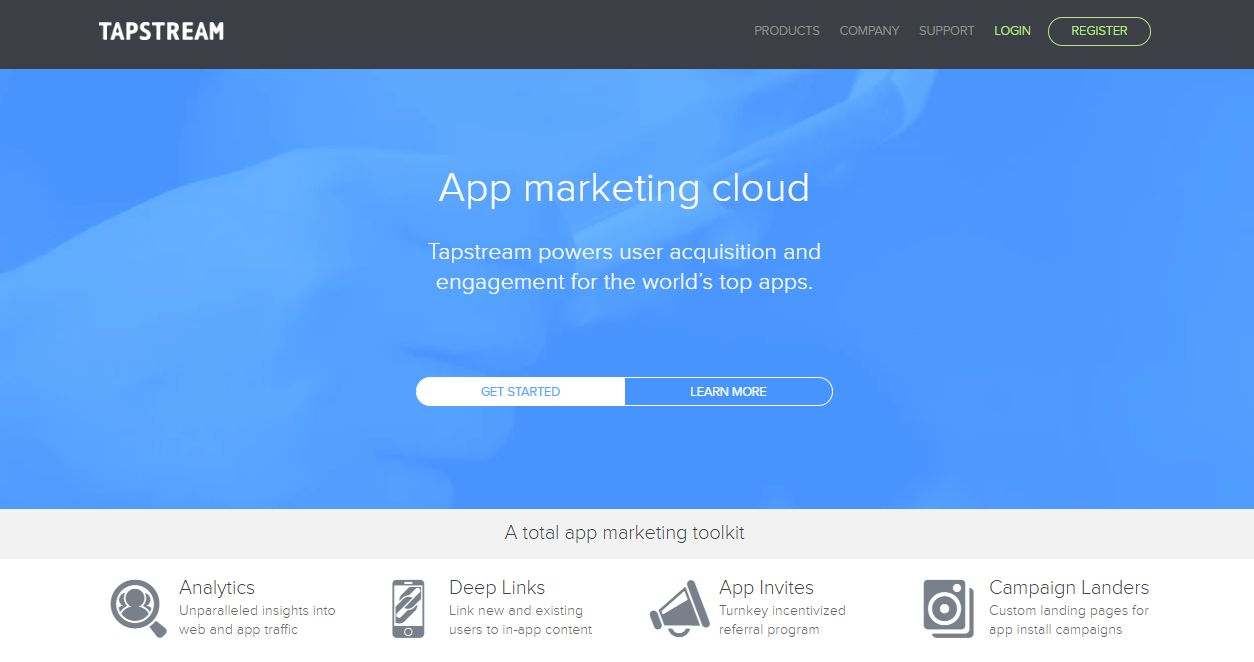
Tapstream is another platform aimed at mobile app advertising and user acquisition, offering a powerful data science approach.
Key Features:
- Cross-network campaign management
- Advanced data analysis for audience targeting
- Predictive analytics for optimizing spend
- Creative tools for ad design
Tapstream specializes in mobile app user acquisition and growth. Their platform combines cross-network campaign management with advanced analytics for audience targeting and data-driven ad optimization. Tapstream aims to help marketers reach the right users, maximize campaign efficiency, and drive sustained growth for your app.
Cost: Customized pricing.
9. Hootsuite
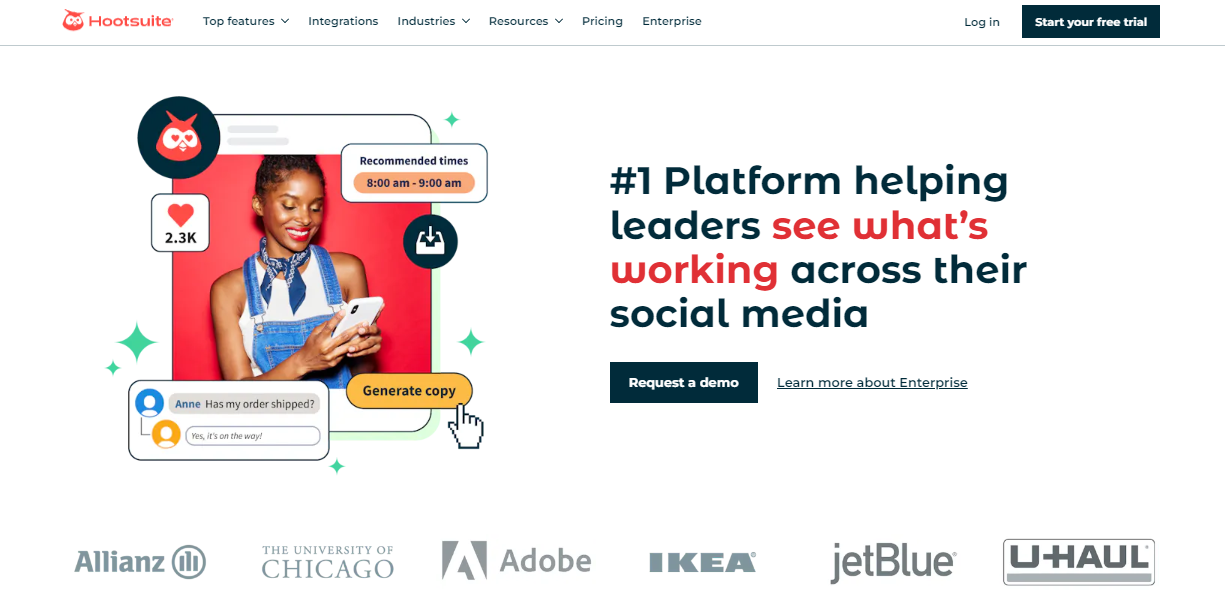
Hootsuite is a widely used social media management platform that allows you to streamline your social media presence across multiple platforms.
Key Features:
- Schedule posts across Facebook, Instagram, Twitter, etc.
- Monitor social mentions and engagement
- Social analytics and reporting
- Team collaboration tools
Hootsuite helps app marketers streamline their social media presence. It offers a central dashboard to engage app users, schedule posts across multiple platforms, monitor brand mentions, track engagement analytics, and collaborate with team members. This efficiency saves time and helps you connect with your audience on social media.
Cost: Starts at $99/mo with a free trial for the first 30 days
10. Tapp

Tapp is a mobile-native SDK built to power high-performance Referral & Viral loop campaigns for app growth.
Key Features:
- The Only Affiliate Marketing SDK for simple iOS & Android integration.
- Customizable Mobile Referral Campaigns (rewards, viral loops, incentives).
- Real-Time Mobile Analytics for taps, referrals, and conversions.
- Full implementation support included with paid plans.
Tapp is a specialist tool for founders and growth marketers focused on building product-led growth engines. It's built specifically for mobile apps to help you integrate referral marketing and incentivized viral loops without heavy development burdens. With hands-on support and real-time analytics, Tapp provides the infrastructure to launch, track, and scale your referral campaigns.
Cost: Has a Free plan for up to 10,000 tracked taps, with paid plans starting at $49.99/mo
5 Factors To Consider When Choosing a Marketing Tool
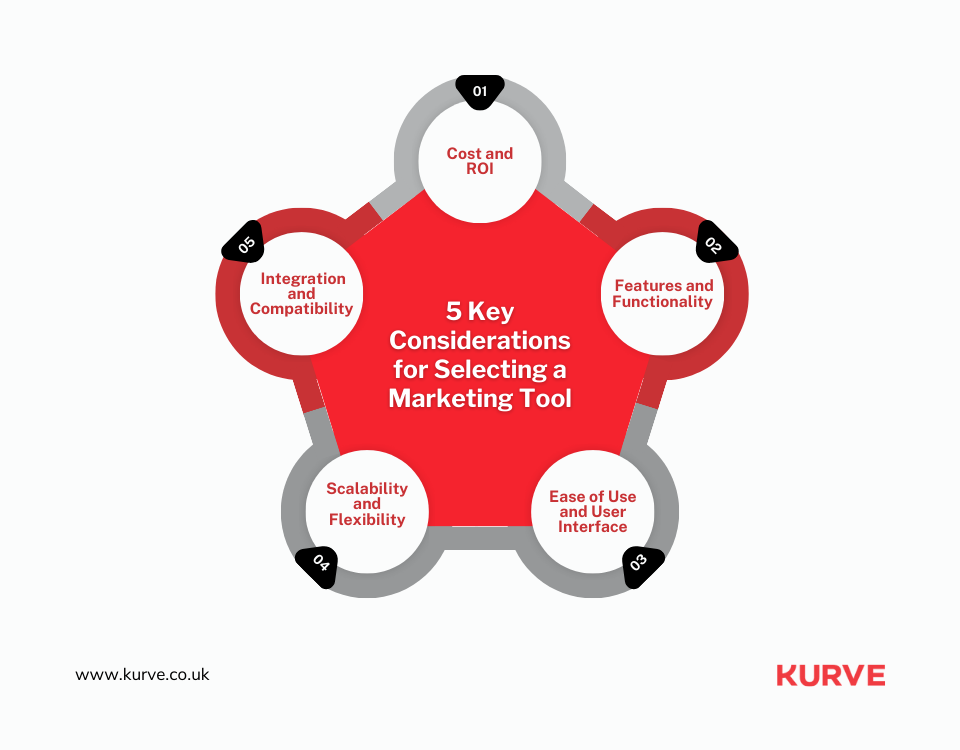
With so many options on the market, selecting the right mobile app marketing tools requires careful consideration. Here are the key factors to keep in mind:
1. Cost and ROI
While some tools are free, many offer a tiered pricing structure. Evaluate the cost versus the potential ROI. Ask yourself: can the tool help you achieve significant enough results to justify the expense?
If available, take advantage of free plans, trials, or demos to test a tool's features and see if it's a good fit before committing financially.
Look beyond the upfront cost. Be informed of the additional fees for specific features, premium support, or a higher user volume.
2. Features and Functionality
Assess the tool's feature set. Does it align with your most important marketing goals (ASO, user acquisition, analytics, etc.)? Avoid paying for features you won't use.
Figure out how much customization the tool offers (e.g., A/B testing setups and targeting options). This is vital to tailoring your marketing efforts.
Consider your current needs and how the tool might support your evolving marketing goals as your app grows.
3. Ease of Use and User Interface
A complex, unintuitive interface can hinder your team, wasting time and potentially leading to errors. Look for a streamlined user experience that's easy to learn and navigate.
Are the marketing tools tailored to experienced marketers or those less tech-savvy? Will your team need training? Usability should match your team's skill level.
Consider the quality of documentation, tutorials, and support options the tool provider offers.
4. Scalability and Flexibility
See if the tool scales with your app as it gains popularity. Avoid tools with user volume limitations or rigid features that might hold you back.
The app market is dynamic. Choose tools that allow for flexibility and quick campaign adjustments that the developers regularly update to address new trends.
5. Integration and Compatibility
See if the tools integrate well with your existing systems (CRM, email marketing platform, etc.). This promotes efficiency and smoother data flow.
Check if it can send and receive data from other systems you use, which is crucial to get a complete picture of your marketing performance.
For advanced users, see if you can get well-documented APIs that allow for custom integrations and automation, maximizing the tool's potential.
Make the Best Use of Marketing Tools With Kurve
Even with powerful tools, the success of your mobile marketing strategy comes down to your marketing team. More so, it's influenced by the mobile app marketing experts working with you.
Speaking of marketing experts, let us know how Kurve can help you. We helped mobile apps like Sweatcoin reach their dream app user growth with APPXL, a personalized and dynamic combination of dynamic organic and paid strategy to create efficient, consistent growth.
You can also check out our blog to stay updated on the latest trends in mobile app marketing.
